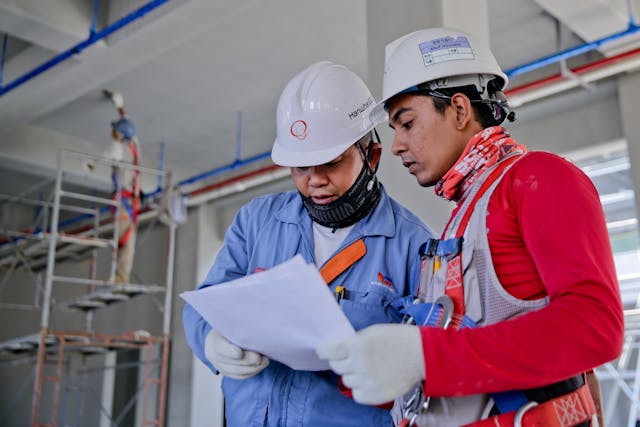
Arizona is experiencing a rapid surge in construction and land acquisition, driven by the growing demand for AI-powered data centers. Investors are snapping up thousands of acres of desert land, preparing to develop large-scale facilities that support technology, cloud services, and AI operations.

“Typically, 100 acres is the minimum for us. We've been looking at doing large scale data centers,” said Anita Verma-Lallian, CEO of Arizona Land Consulting. Her firm has purchased hundreds of acres in the Arizona desert, focusing solely on data center developments.
“There are a lot of people looking for land, so we try to stay ahead of the competition as much as we can,” she added. “We try to buy a little bit further out than where existing developments are happening—that's been a little bit of our strategy.”
The U.S. now hosts over 5,400 data centers, transforming communities into tech hubs and generating local employment. Cities like Virginia’s Ashburn and California’s Silicon Valley have already seen once-quiet neighborhoods evolve into technology destinations. In Arizona, cities like Buckeye are emerging as key sites for these developments.
“There's a good workforce that lives there. A lot of people commute from there as well. We are creating local jobs which is great for everyone,” Verma-Lallian said.
Arizona has become a prime data center destination for several reasons, including low risk of natural disasters, favorable land costs, and access to renewable energy options. The state has attracted billion-dollar projects, including Bill Gates’ $100 million Smart City in Belmont, Microsoft’s data center near Phoenix, and Google’s $1 billion investment in the region.
“The economic laws of supply and demand apply to land, including land for data centers, which happen to be very in-demand right now,” said Danielle Hale, chief economist at Realtor.com. “When demand is high, it tends to push the price higher, which is why this land seems very attractive as an investment right now.”

Verma-Lallian is also partnering with venture capitalist Chamath Palihapitiya, completing a $51 million land deal adjacent to high-profile developments. “The data center we bought with Chamath, it's right next to a smart city that Bill Gates owns. They also recently rezoned a portion of the property to industrial,” she said. “We all just want to see as much development in that area and it helps everybody.”
Sustainability is a key consideration. “One thing that's really important to us is we use sustainable technologies and do this in a way that's eco-friendly,” Verma-Lallian noted. Her team is exploring advanced cooling systems and AI-driven energy efficiency to minimize environmental impact. “We want to be as efficient with our resources and to optimize how we're running it.”
Data centers are attractive to investors not only for their tax benefits—including equipment exemptions and property tax reductions—but also for their strategic placement near workforce hubs and technology corridors.
Verma-Lallian’s investments reflect a long family history in land development. “Post-COVID, there was this big boom towards industrial development, and so we were taking a lot of land traditionally for residential purposes and looking at it for industrial uses, which included data centers,” she said.
With the massive Arizona sites potentially unfolding over a 10-year development horizon, investors are betting on Arizona’s desert land as a long-term engine for AI-driven growth.
“The site's massive. We do hope to start breaking ground on phases in the next few years,” Verma-Lallian said, emphasizing the hands-on nature of her involvement—from planning to working with developers to guiding sustainable construction practices.
Originally reported by Joy Dumandan in Realtor.Com